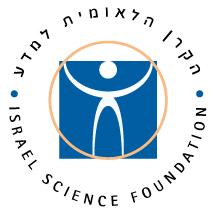Quantum field theory is a ubiquitous theoretical setup describing disparate physical phenomena ranging from elementary particle physics, condensed matter systems, and statistical physics. However, we still do not have full theoretical control over these setups. One of the main reasons for this is that such models, when they are describing systems of physical interest, are typically strongly coupled. To deal with such strongly coupled systems new understandings and computational techniques need to be developed. The search for such novel understandings can be done in various directions. First, one can consider setups with simplifying features – for example theoretical models with larger symmetry, which in our case is supersymmetry. Second, one could extend the set of observables under consideration. Historically, the research in QFT was centered on local operators which are directly related to particle-like excitations. However, QFTs admit a more generic set of operators, the so called extended operators or defect operators, which have arbitrary dimensionality. Some of these objects were studied in the past, for example line operators as indicators of confinement, but our understanding of these remains rudimentary. Related to the extension of the discussion to defect operators is the need to extend the understanding of our basic notions about a theory, such as symmetry. Extended objects can be charged under generalized symmetries, higher form symmetries. These are symmetries charge operators of which are not associated to co-dimension one objects, as is the case with the familiar symmetries, but with higher co-dimension spaces. The generalized symmetries started recently to play a role in many unrelated physical discussions including but not limited to: supersymmetric dualities, topological phases of matter, and relations between QFTs in different dimensions.
The workshop will focus on discussing these, and related, developments in QFT and String Theory.
Confirmed speakers include:
- Fabio Apruzzi (Bern)
- Ibrahima Bah (Johns Hopkins)
- Marieke van Beest (Oxford)
- Federico Bonetti (Oxford)
- Matthew Buican (Queen Mary)
- Christopher Herzog (Kings College)
- Christian Jepsen (SCGP)
- Hee-Cheol Kim (Postech)
- Neil Lambert (Kings College)
- Elli Pomoni (DESY)
- Avia Raviv Moshe (SCGP)
- Christoph Uhlemann (Michigan)
- Irene Valenzuela (CERN and Madrid)
Organizers
Oren Bergman, Technion
Shlomo Razamat, Technion
Amos Yarom, Technion
Administrator
Keren Tshilibi
Email: kerent@technion.ac.il
Tel: 972-4-829-2608

